|
ndian nights are as dark as the days are bright. Dim street lighting and the habit of taxi drivers to switch off their lights make for challenging driving.
Off late though, the days are under a cloud of darkness as well. The brazen thievery and incompetence of the organizers (there’s a misnomer for you) of the Commonwealth Games has put a damper on the national pride. Now the poor and downtrodden of this country are used to their share of dampers, but this time round it’s the corporate types like me whose pride is wounded, and our pride doesn’t come cheap, it costs money, pecunia. Our foreign visitors are used to seeing poor people on the streets, but like all smart people they know that within a few years trickle down economics will do its job, if the hapless people can just stay alive long enough. In the meantime, India is the place to be, with companies showing 25 - 30% growth, with Indian companies acquiring former competitors in Europe and the U.S. and dividing up the global market place for capital goods between themselves and the Chinese. Domestically, India is a success too, at least for the people who matter, the middle and upper classes.
The failure of the Commonwealth Games is a failure of Delhi’s inner circle, where Kalmadi’s and Bhanot’s bosses meet to socialize, play golf and marry off their children to each other, and it’s a failure of corporate India. Not because Corporate India organized the Games, but because it didn’t. It didn’t get involved because the problems of the Government of India are seen as just that, their problem. Corporate India is too busy with its own detailed and creative plans to boost corporate and personal wealth to be worrying about the Delhi Government’s bid to host the Commonwealth Games. The Games are an anachronism, a reminder of a time past. They offer no serious form of sponsorship (unlike the IPL) and on a personal level are a nuisance. Anybody who can afford to has planned vacations away from Delhi during this period. Can you imagine someone having to face Mukesh Ambani or Ratan Tataand explain to them that their latest $3 billion petrochemical plant or $2 billion car factory isn’t quite ready to commence operations because of a “difference in hygiene standards”?? I wonder if after this debacle is behind us Corporate India will make its wrath felt to the ghosts of Christmases past in Delhi. This time their incompetence didn’t just hurt and dislocate the common man, it has hurt the pocket books that really count. Bad Jokes
2 Comments
So this is what reverse logistics in India looks like. The router that I preemptively bought at Best Buy doesn't work. The Belkin support engineer (a lady from Chennai) apologized after an hour's diagnosis and gave me a pick up address in Mumbai for a replacement. A 5 min call to Best Buy in Chicago gets me my replacement receipt. The service center is located in the heart of Central Mumbai, Tardeo. Rows of Indian college kids and office boys sit in a confined, low ceilinged and stifling room waiting for their number to be called out. Today I am EB 0452 S. The heads of the customer service reps are not visible over the edge of the counter, and so every few minutes or so a disembodied voice shouts out "phor sikshty phor!". "Phor thirty six!" Had dinner at Cafe Mondegar tonight, old Parsi cafe going back to 1935. http://www.tripadvisor.com/Restaurant_Review-g304554-d810909-Reviews-Cafe_Mondegar-Mumbai_Bombay_Maharashtra.html Mumbai has been quiet the past three days, "too quiet, as Philip Marlow would say. It's the quiet before the storm called Ganpati breaks out tomorrow. What's a one - day prayer devoted to Ganesh, the elephant God, in the rest of India is 15 days of tribal mayhem in Mumbai.
Ganpati is brought home to a loud banging of drums on Day 1. Ganpati is paraded on the streets, accompanied by entire families and neighbourhoods dancing along wildly, unencumbered by any reticence. Ganpati is taken for immersion in the sea and in artificial lakes (the government is promoting an 'eco friendly' Ganpati) on days three and six and nine. But now it's day 14, and tomorrow is the Big One. There'll be no namby pamby family Ganpatis carried for immersion. Tomorrow will be for the big Ganeshes, the neighbourhood ones, the ones sponsored by political parties of all colour. Marine Drive will shut down. Chowpatty Beach will be packed. Mumbai Police has prepared flawlessly, with routes mapped out for entry and exit (reverse logistics), and every square foot of the beach cordoned off and supervised from 40 foot high towers. Don't ask us Indians to manage airports and ports, but boy can we handle large scale religious events. 5000 years of practice comes in handy.  Rustom’s attitude to packers: “tell me when it’s over” India abolished the caste system, that nefarious method of classifying society into pre - ordained sections, in the 1960s, and a good thing too. After all, it has no place in modern 21st century society. My very first taxi driver from the Taj Hotel, chattered away incessantly as we drove along Marine Drive, over Peddar Road, past the shrine to Haji Ali, past the Willingdon Club, on to Lower Parel, where I would be working. He advised on all things material, what car to buy, where to live, etc. When we pulled up outside the Maersk office he casually asked what my name was. “You’re a Tiwari??”. But I’m an Awasthi, I too am a Brahmin”, a reference to the erstwhile priestly class. Hands were folded in supplication, as if our meeting had been pre-ordained by higher powers. The next morning he muscled his way past the other taxi drivers to pick me up, and all conversation turned to the spiritual, his pilgrimages, etc. It wasn’t until some days that I discovered that Awasthiji was charging me 50 rupees extra, unlike the less exalted taxi drivers who nonetheless had more straightforward scruples.  Teddy’s attitude to packers: “tell me when it’s over”. On one of my next trips back to the Taj from Lower Parel, I got into one of Mumbai’s Meeru Taxis, a modern and good dial a cab service. “Your Hindi is quite nice”, the taxi driver said just after I got it. “Mine isn’t, I know, I’ve got quite a course way of speaking. What is your full name again?” “Sanjay Tiwari”, I reply. Taxi grinds to a sudden halt, and he turns around for the first time to look at me. “You’re a Tiwari? I’m a Tripathi (Brahmin). And I used to be called Tiwari, back in Uttar Pradesh, before moving to Bombay years ago, and for some stupid reason, thinking it would improve my luck, changed my name to Tripathi.” ‘Hmmmmmmm Hmmmmmmm’. “Do you like that?”, Tripathiji wants to know. He has started humming something.  Our attitude to packers: “just shoot me now”. “Yes, it’s very good indeed” I reply politely, while continuing to try to read my paper. Without needing further encouragement Tripathiji proceeds to recite in verse selections of the Ramayana, one of India’s ancient scriptures. “No doubtful Tripathiji”, this will have great positive effect on you”, he says. Mr Tripathi seems to have forgotten that it is he who is Tripathi and I the Tiwari, but he keeps calling me Tripathiji, and the references to the “no doubtful” power of a particular passage become fast and furious. “Do you like Mumbai?”, I ask him. “Yes”, he replies matter of factly. Everyone is always busy and business oriented, and that’s what I like. I once asked a foreigner if he liked Mumbai, and he said no. When I asked him why he replied, ‘everyone aalways bijji. Bijji bijji bijji’. “Idiot”, I thought to myself, Tripathiji recounted. “Better to be bijji than not have anything to do. Wait till you see what happens when you’re not bijji.” My cousin TiwariOur first venture out of Advent, the apartment building with the very Catholic name, has us running into the two security guards at the entrance of the building. I ask the more elder and senior looking of the two to just give us a signal when the building supervisor makes his appearance.
Silence. Have I asked him something wrong? Not asked politely enough? All four of us wait for a reply from him or the other guard. “Are you from Rajasthan?”, he asks. “No”, I reply, “my father’s family is originally from Madhya Pradesh”. “Ah, I was wondering how a Tiwari came to be here”. A smile appears. “I’m Mishra”, another Brahmin. “And he”, and now he points at his colleague behind him who by now is grinning from ear to ear, “is also a Tiwari”. The resemblance between the two Tiwaris is deafening. He a rotund 5’ 2”, smiling constantly, and me a trim 6’ 3”, and well, I remember smiling just the other day in fact. “And over there”, Mishraji continues as he points at the other wing of the building, “a Dubeyji (Brahmin) bought an apartment.” My long lost cousin Tiwari smiles even more broadly. With this revelation of Mishraji it’s clear that us Brahmins are going places. By extension we all just bought a $2 million apartment. The daily interactions with Mishraji and Tiwari remain polite, until one day Tiwari calls out to Mishraji as I am going up the stairs, “Mishraji”, doesn’t it strike you as odd that Tiwariji has been here for days and hasn’t yet treated us to sweets?” I need to dig up that Government of India ruling on the caste system and pass it on to my long lost cousins. There’s too many downsides. 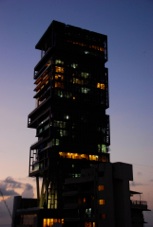 Rains have lashed Bombay for the past several days. Thirty centimeters in eight hours on Monday. Our part of town, South Mumbai (or SoBo for friends) was relatively unaffected with drains and pumps holding up, but the Northern parts of the city ground to a halt around rush hour. At night, after work, I dash around by car trying to pick up dry cleaning, phone cards, signing on with a new ATM card. It’s dark and somewhat like driving around Chicago in a snow storm close to Christmas, trying to get some shopping in. Colaba, the part of South Bombay to the East of where we live, with messy streets, cafes and all the shops that you need for daily life, is busy. I drive past a hindu temple where 50 - 60 people, mostly women, are standing out in the rain, barely shielded by their umbrellas. They stare intently at the temple, which is little more than a hole in the wall, but where the service is being conducted. Light from the temple cuts past the rain and beams out onto their faces. 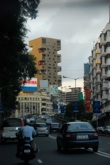 Tomorrow it will be Krishna Janmashtmi, the birthday of Lord Krishna, who legend has it was born in the middle of the night amidst lashing rains. It’s also the fasting month of Ramzan for muslims, and people of all religions have been descending on the muslim neigbourhoods of Mumbai in the evenings to buy and eat road side food. We’re getting to know the neighbourhood bit by bit. I went for a walk on a Sunday, looking for a place to get a haircut. I asked the dry cleaning guy, who was bald, what a good place would be, and he told me to walk a few shops down, to Vijay’s (are you sure it’s not Bob’s?), describing it as a clean and decent place. The barber sat me down without any undue ceremony and started snipping away. This was different from the hair salon at the Taj, where every uttering and compliment by the barber was geared towards maximizing his tip, on top of the 650 rupees I would be paying. This was “No Frills Vijays”, where we don’t talk even if you ask us to. 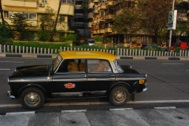 “Head Massage??”, he asked when he was done cutting my hair. “Sure”, “Theek Hai”, I replied. I’d had these before in Delhi, thirty seconds of synchronized banging and knocking on your head which left you feeling remarkably refreshed. As I like to get maximum bang for the buck I also convince myself that these head massages lead to better blood circulation, and therefore higher intelligence. So Vijay knocks me on the head a bit and I get up to leave. “No! Head Massage?”, he asks as he disappears into a small ante room. The other customers look up in surprise, ‘how could you possibly just get up like that?’ “Oh, I thought that was it”, I said, and sat back down obediently. 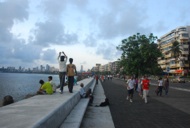 Marine Drive on a Sunday Vijay walks back out with what can only best be described as a hand grenade in his hand. The hand grenade has a thick rubber mat attached to one end of it and six electric coils that are attached to the polar ends of the hand grenade and then weave round the rubber mat. Vijay slips his right hand between the rubber mat and the coils, plugs in the hand grenade, which comes with its heavy duty wire, and starts running his hand, which is now vibrating violently, over my head. “Electric head massage”, he says. Ah. He pushes me forward suddenly so that my face is almost flat on the counter and starts running G.I. Hand Grenade over my back. This will be so soothing 72 hours from now, I think to myself, but right now, it’s just a little disconcerting. Vijay pulls be back up right and starts running the hand grenade over my arms. When he reaches up to my hands our hands interweave, and we share an intimate moment, spoiled only BY A VIOLENTLY VIBRATING HAND GRENADE THAT’S ABOUT TO EXPLODE!!!!”. Tarini had a long Skype session the other day with her best friend in Chicago, Juliette, who had just returned from France. At the end of it Tarini felt all the better for having spoken to her, or so it seemed. At bed time that night she said, “I just want to go home”. She meant Chicago. |
Categories
All
Archives
October 2022
Btw, the banner photo was taken from our holiday home outside of San Gimignano at 6.20 am. What light! It lasted all of five minutes.
|
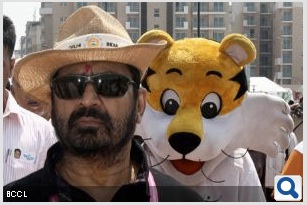
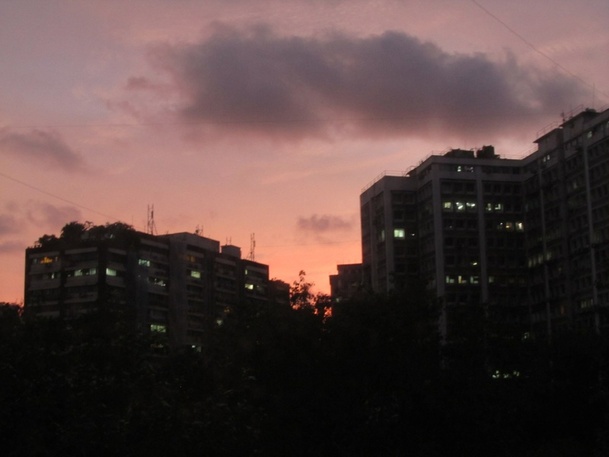
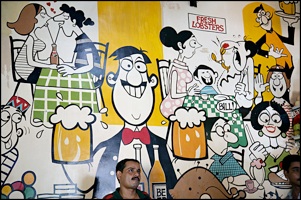
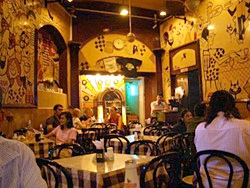
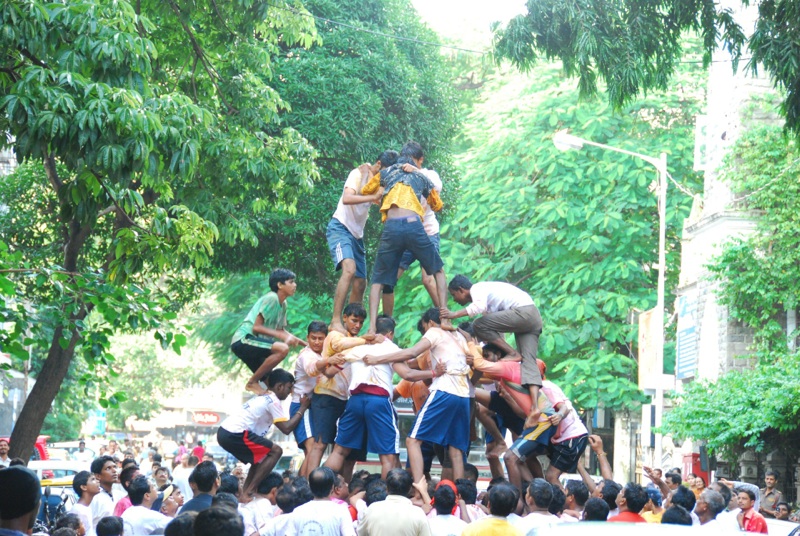
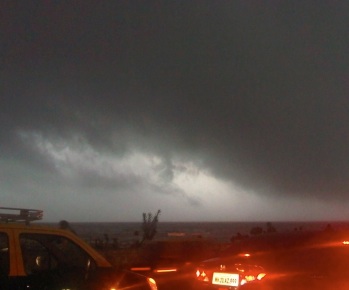
 RSS Feed
RSS Feed
